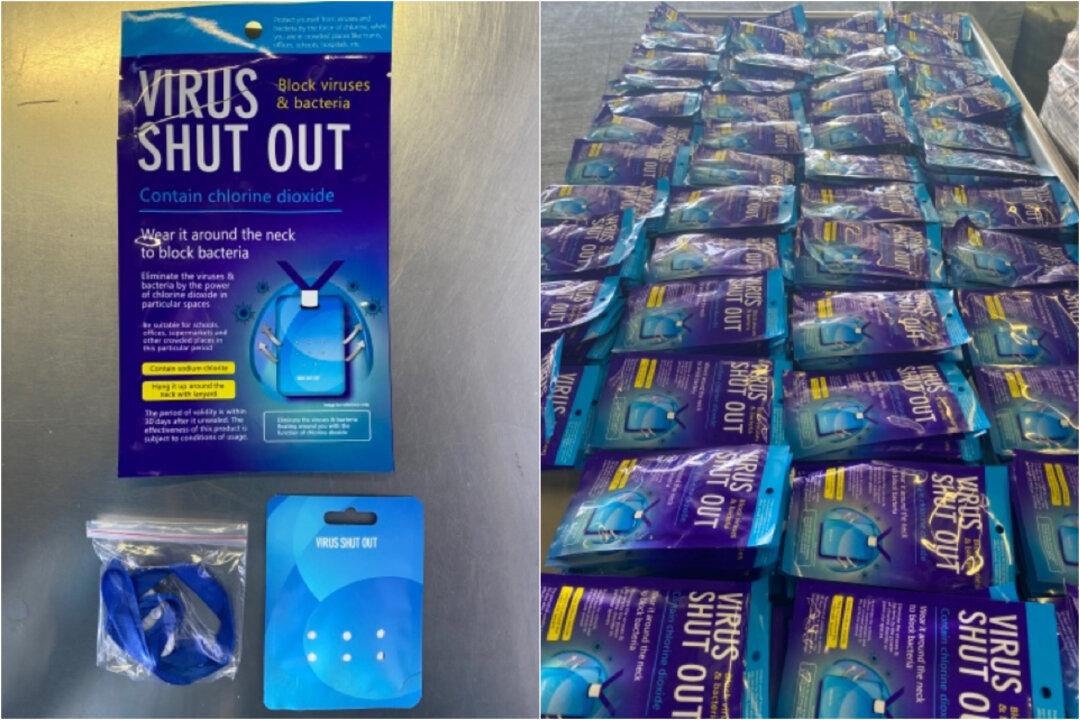U.S. Customs and Border Protection officers recently seized 30,000 fraudulent Chinese-made necklaces that claimed to protect wearers from COVID-19.
The agents described the “Virus Shut Out” necklaces as similar to lanyards with a blue packet on them; the packets were filled with chlorine dioxide, which the packaging claims would “create an anti-bacterial cloud” that keeps the virus away when worn around the neck.





